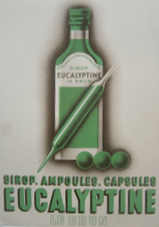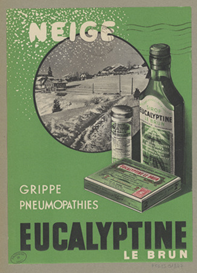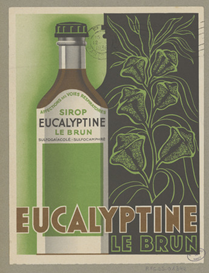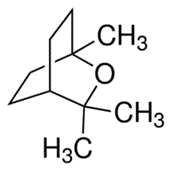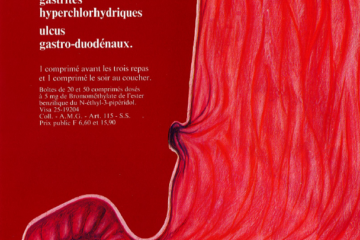The antibiotic Eucalyptine® associated an antibiotic (penicillin) with the terpene derivatives eucalyptol (1,8-cineol) and camphor. The drug was used to treat benign bronchial infections, such as bronchitis and tracheitis, to fluidify the bronchial secretions. This well-tolerated product was also used to treat ear, nose and throat infections, such as angina, otitis, sinusitis, and laryngitis.
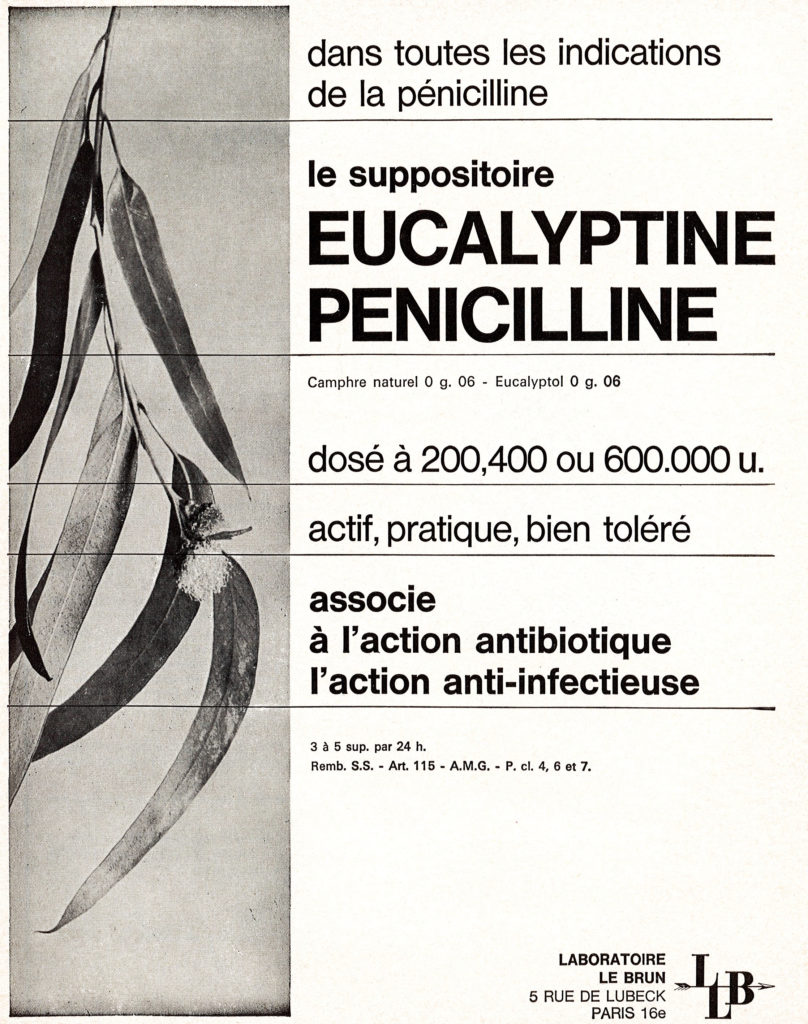
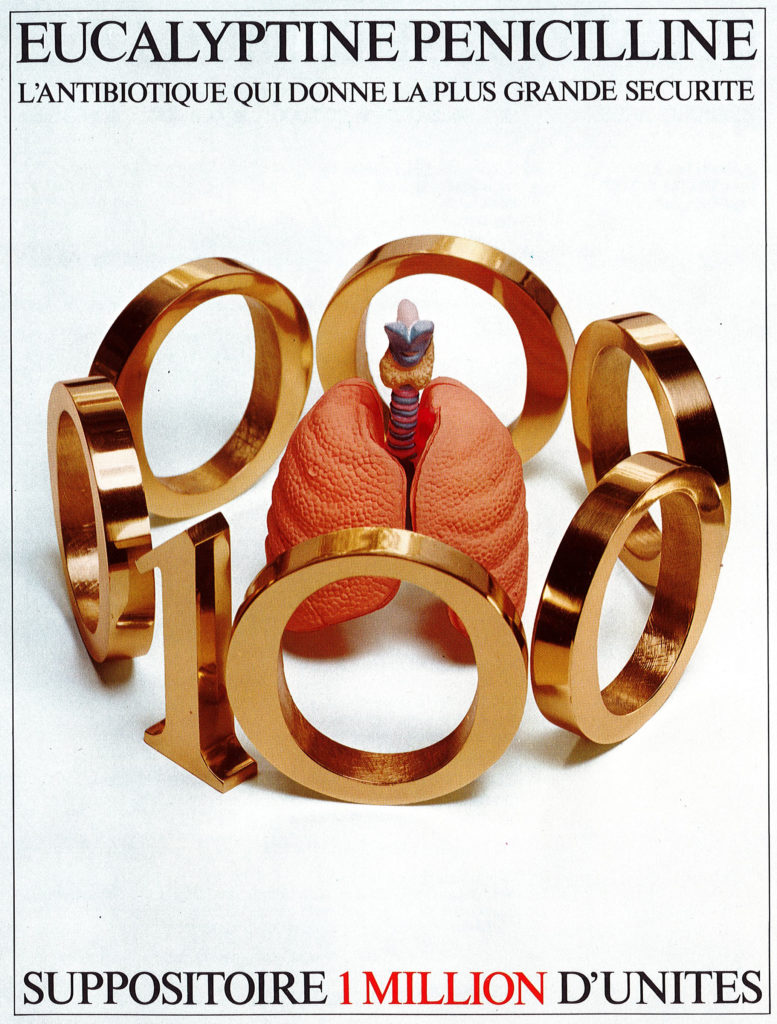
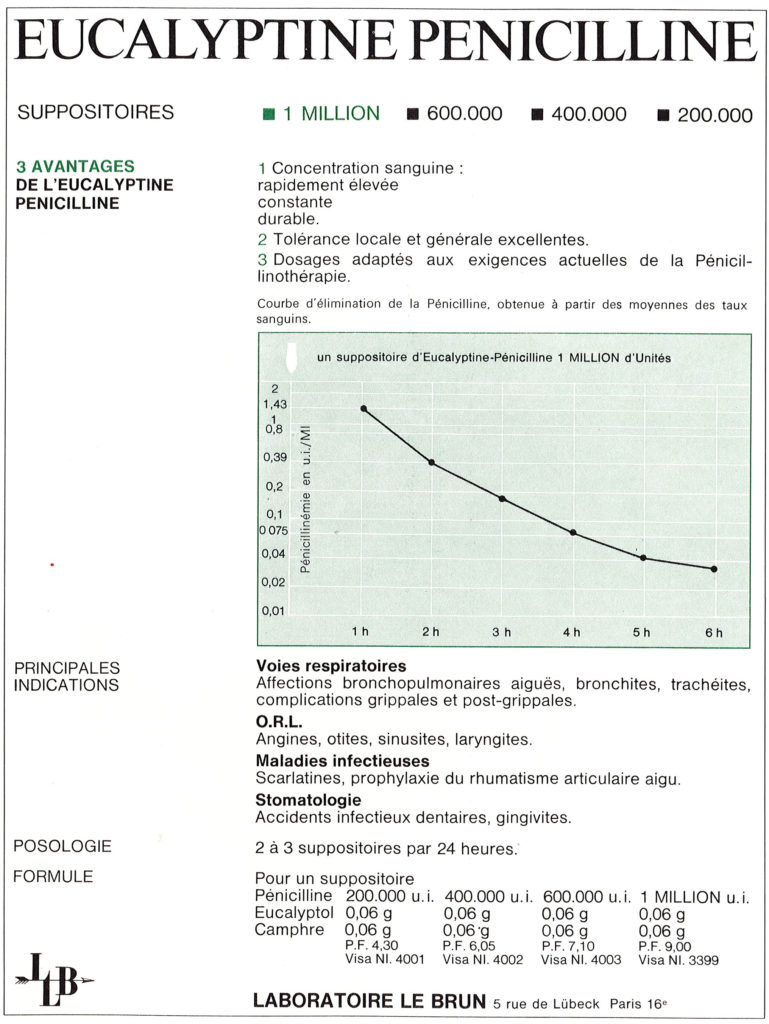
Camphor and eucalyptol can be found in essential oils derived from many plants. They are bicyclic monoterpenes with anti-inflammatory (antiflogistic) and antiseptic properties. Eucalyptol is the main ingredient (30-90% content) of essential oils (EOs) obtained from eucalyptus leaves. EOs with a high content in eucalyptol (>70%) have shown excellent antibacterial effects, alone or combined with antibiotics. The product is useful to inhibit quorum sensing which is a system of communication between microbes by chemical signals. Encalyptol has both antibiotic properties and the ability to block receptors that receive chemical signals. In addition, eucalyptol displays mucolytic, broncho-dilatory, antioxidant and anti-inflammatory properties. For these reason, the product was also used in the treatment of bronchitis. This active ingredient remains largely used today in various medicinal preparations, notably in preparations for the protection and control of chronic inflammatory airway diseases.
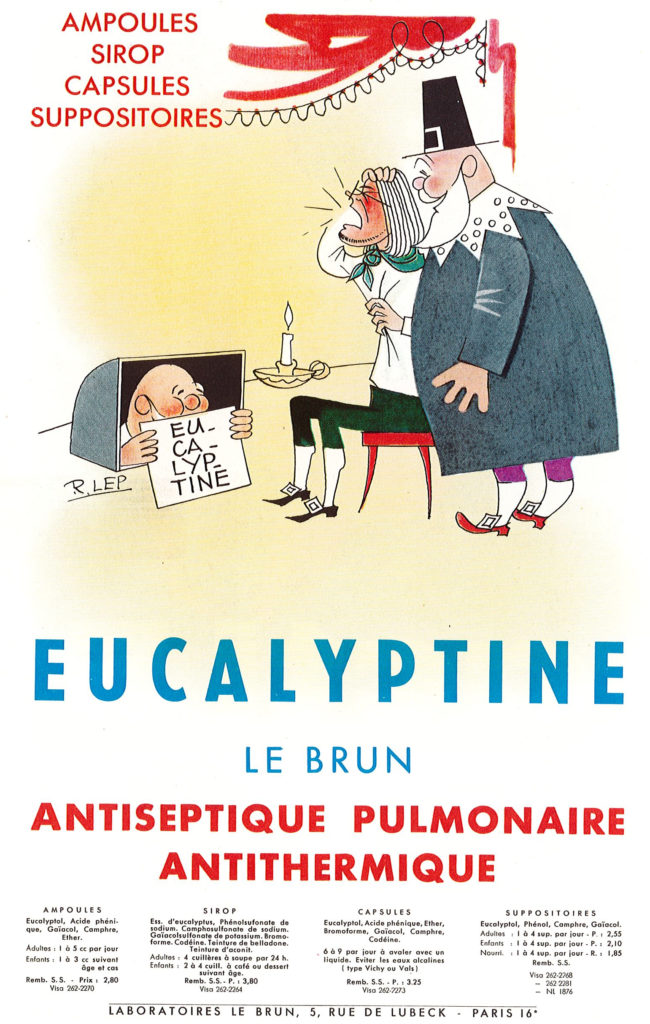
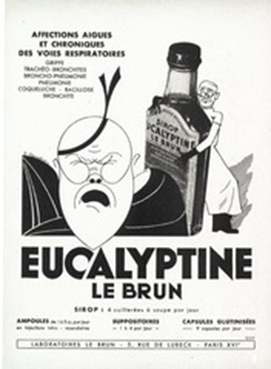
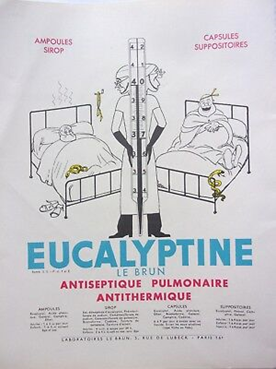
Various terpenic derivatives can be found in essential oils (camphor, eucalyptol, thujone, menthol) used to treat coughs and colds. But the use of suppositories containing terpenes (as in the case of this productEucalyptine Penicilline®) is now abandoned, due to the risk of neurological disorders, especially convulsions, in infants and small children. A syrup “Eucalyptine Le Brun” remains available today, but its composition has changed. It contains codeine and cineol, not penicillin and camphor.
